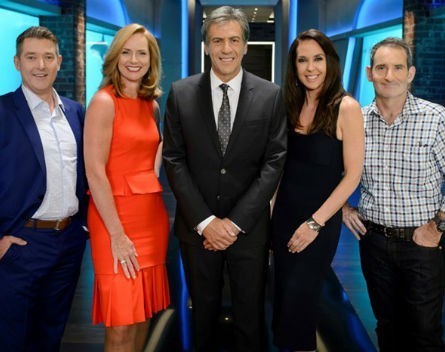
There will be a new face in the Shark Tank in 2016, with Channel Ten revealing entrepreneurs will be given the opportunity to pitch their businesses to Dr Glen Richards in season two of the popular reality television show.
Read more: Shark Tank season one recap: All the highs and lows
Richards is the founder and former chief executive of one of Australia’s largest pet care companies, Greencross.
Richards established Greencross Vets in Townsville in 1994 and previously sat on the board of Petbarn, before the two businesses merged in 2013.
Greencross now operates more than 130 veterinary hospitals in Australia, New Zealand and China, as well as more than 200 pet care retail stores under the Petbarn and City Farmers brand names in Australia and the Animates brands in New Zealand.
The company is worth an estimated $700 million.
Richards, who is a non-executive director of Greencross, will replace real estate mogul John McGrath in the tank, with the chief executive of McGrath Estate Agents saying he is quitting the show because of the “rapid growth” of and expansion plans for his own business.
“Season one was an incredible experience for me personally and I believe this show will continue to be an amazing catalyst to encourage and develop many young entrepreneurs throughout Australia and New Zealand to pursue their business dreams,” McGrath said.
“I hope that I may be able to play a role in future series as the show progresses and continues its successful momentum.”
Richards will join season one sharks Naomi Simson, Janine Allis, Andrew Banks and Steve Baxter.
Filming for the second season of Shark Tank, began this week.
Richards said he has no doubts being part of the Shark Tank will be “a fun and challenging experience”.
“Shark Tank is a great opportunity to mentor, to inspire and to be inspired by some great Australian entrepreneurs and hopefully support their journey through investment and advice,” Richards said.
Season one of Shark Tank saw the Simson, Baxter, Allis, Banks and McGrath offer 30 deals worth close to $7 million to budding entrepreneurs from all walks of life.
One of the first successful deals done in the tank was for Hegs, a South Australian-based business that produces washing pegs with hooks to hang additional pieces of clothing.
Hegs founder Scott Boocock secured a $380,000 deal from Naomi Simson, made up of $100,000 for 15% of the company and a $280,000 loan.
Speaking to SmartCompany this morning, Boocock says Hegs are now available in more then 12 countries and the company is on track to hit $1 million in revenue in its first year of operation.
“We have a target of 53 million hegs running through our South Australian plant,” Boocock says.
“We are 100% Australian-made now, there is nothing not made or assembled in Australia, which is an exciting story to tell.”
Boocock says Hegs has just signed a three-year deal with the McGrath Foundation to produce pink hegs, which will help raise money for breast cancer support and education.
There are plans to roll out hegs in a range of colours to support other causes.
“A big part of this for me is the corporate social responsibility,” Boocock says.
“Why we’re in business is really important for me and for my staff and team … it’s not just a job, but a reason for their job.”
Boocock says understanding your “why” is crucial as an entrepreneur and he recommends the entrepreneurs lining up to pitch to the sharks on Shark Tank season two “always bring it back to that why”.
“It’s not just about the money,” he says.
“If it is just about the money, you probably won’t succeed.”
Hegs has now translated its marketing material into 16 languages and the first bags of French-language hegs will ship out in five weeks time, with Spanish-language bags to follow shortly after.
Boocock says he selected the languages to translate the product into based on where patents could be secured for the hegs product, and that came down to two key factors: population and the climate.
“They have to be using pegs, so those where the two core reasons,” he says.
Having a strategy to protect your intellectual property is Boocock’s other piece of advice to future Shark Tank contestants.
“If I could give some advice is would be to have a patent strategy down a little better,” he says.
‘I never realised how powerful it would be for the business.”
Boocock says the sharks are looking for scalable businesses and scale is achieved through protection, which is in turn secured through trademarks and patents.
“Get your facts and figures right and understand protection,” he says.
Boocock welcomed the news that Richards will be among the sharks in the next season, saying a new face in the Shark Tank this year will bring a welcome “element of surprise” for the entrepreneurs pitching their ideas.
This article originally appeared on SmartCompany.


COMMENTS
SmartCompany is committed to hosting lively discussions. Help us keep the conversation useful, interesting and welcoming. We aim to publish comments quickly in the interest of promoting robust conversation, but we’re a small team and we deploy filters to protect against legal risk. Occasionally your comment may be held up while it is being reviewed, but we’re working as fast as we can to keep the conversation rolling.
The SmartCompany comment section is members-only content. Please subscribe to leave a comment.
The SmartCompany comment section is members-only content. Please login to leave a comment.